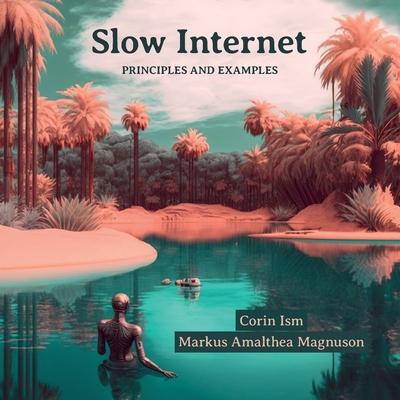This brief book - designed to be readable even for people who've had their attention span shattered by doomscrolling and hellsites - presents the concept of Slow Internet. Merging the slow movement with the untapped promise of the early Internet, the authors - governance futurist Corin Ism and altruistic hacker Markus Amalthea Magnuson - articulate three design principles, plenty of concrete examples, a vibe and a vision, adding up to an exit path from the Stressed Internet of today.
Synthesising ideas from discourses surrounding surveillance capitalism, privacy advocacy, platform cooperativism and AI alignment, Slow Internet suggests a relationship with technology where intentionality is front and centre. One where the user should be allowed to leverage technological muscles for their own objectives - rather than becoming the exploit of someone else's interests.
Including suggestions like analogue dating apps, interfaces optimised for well-being, finite scrolls, and websites with opening hours, the Slow Internet manifesto is chock-full of inspiration and ideation, perfect for the fatigued netizen looking for a healthier relationship with the technology of tomorrow and today. A palm tree badge is also proposed as a means to quickly signal an unwillingness to participate in draining demands to boost relevance on socials, and an enthusiastic willingness to establish more pleasant norms.
Slow Internet marries a deep analysis of incentive and market design with actionable steps that developers of enterprises, code and interfaces can make use of to build virtual futures characterised by joy, calm and leisure. This is the spark for those ready to take the step that follows upon critiquing what is: suggesting and building what could be instead.
